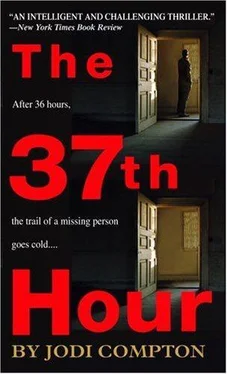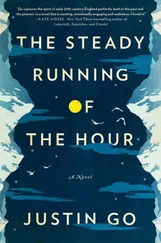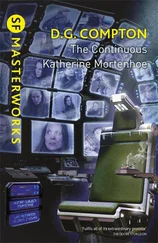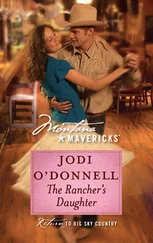“Will you help me?” I asked finally.
Genevieve looked out the window, at the fallow fields of the neighbor’s lands, the stubble lit by the last rays of the setting sun.
“I know where Shiloh is,” Genevieve said dully.
It was too good to be true, but my heart leapt anyway.
“He’s in the river,” Genevieve said. “He’s dead.”
It was like a verdict, so calmly absolute was her voice. Genevieve was my teacher. Her voice was the voice of truth and fact to me. Get a grip, Sarah, I told myself. She can’t know that; she can’t know that.
Genevieve wasn’t looking at me, so she couldn’t see the hostile stare I was giving her. “Could you try to be a little more helpful?” I said thinly.
She turned and looked at me, and now there was a little more light, something alive in her dark eyes. “I am,” she said. “I was listening to everything you said. It’s the only thing that makes sense.”
Her voice was very matter-of-fact, as though Shiloh were someone she’d never met. “You used to tell me yourself, he’d get depressed. He had his dark periods-”
“But not now. He was getting ready to go to Quantico-”
“Maybe he was afraid of that. He might have thought he wouldn’t make it in the FBI. Shiloh was hard on himself. The prospect of failure would have scared him.”
“Not that much.” I felt warm in the generous heat of the farmhouse’s furnace system and shed my jacket, hanging it across the back of a chair.
“Or maybe he was afraid of your marriage not working out,” she said.
“We’ve only been married for two months.”
“And already the two of you were going to be living in different parts of the country. Just the day before his trip, you went out of town without him.”
“For godsakes, I asked him to come along,” I told her. “He didn’t want to come.”
“Maybe not,” she said. “But then he was home alone. Asking himself how much longer he was going to have you, whether he’d ever measure up to his impossible expectations for himself. Shiloh knew how easily plans for the future can go wrong. At some point he walked out to the bridge-it’s only blocks from your house, right?-and jumped.”
I understood something then. Genevieve had moved down here from the Cities because the Mississippi River and its many bridges were too great a temptation. Asked to theorize about what could have happened to Shiloh, Genevieve had plotted a course like the one she’d so often wanted to take.
“He wasn’t suicidal,” I pointed out. “He wasn’t even depressed.”
“She was happy in her marriage,” Genevieve said.
“Who was?” I demanded, baffled. The conversation seemed to have taken a completely unforeseen turn.
“She was happy in her marriage,” Genevieve repeated. “He wasn’t gay. She wasn’t depressed. If he was cheating on me, I’d have known. She wasn’t the kind of kid to stay out all night without calling.” It was an unemotional litany. “You’ve heard those lines a thousand times. So have I. All detectives do. Wives, husbands, parents… sometimes they’re the last to know the important stuff.”
What she had said was true.
“Sometimes depression is just biological. There doesn’t have to be an obvious trigger,” she went on. “And people with depression get good at hiding it from the people around them. It wasn’t your fault.”
I shook my head. “He didn’t kill himself.”
One of the things that made Genevieve a master interrogator was her voice. It was low and soft, no matter how awful the things were she had to ask. She’d never sounded more dispassionate than she did now. Deep in her own despair, she was oblivious to the pain she was causing me.
“If it wasn’t suicide, then it could have been another woman. You said he didn’t seem to take anything much with him when he left the house. He went somewhere in the neighborhood. Maybe a bar.”
“Gen,” I said, my voice higher and more strained than normal, but she didn’t seem to hear me.
“Shiloh was a healthy young guy whose wife was out of town. He went looking for some strange pussy and found the wrong woman. She stabbed him or shot him and got help getting rid of the body.”
“Fine,” I said, forcing my voice back into its normal low register. “You’re welcome to your theories. But at least come back to the Cities with me and try to prove them. Will you do that much?”
When she didn’t speak right away, I thought I’d won.
Then she said, “Back when I was a cop-”
“You’re still a cop,” I said.
She ignored me. “Back then, I assumed I was jaded. Just because of what I did for a living,” Genevieve said reflectively. “But the world is a much worse place than I ever imagined.” She paused. “I don’t really think I want to know what’s happened to Shiloh.”
Silence fell in the darkening kitchen and I couldn’t think of anything else to say.
“Well,” I said finally. “Thanks for the coffee.” I picked up my jacket.
At last I’d startled her. “You’re staying, aren’t you?” she said. The chair scraped as she got up to follow me.
“I can’t,” I said. “I’ve got things to do.”
“You’re going to drive back to the Cities? Now?”
“It’s not late,” I said at the front door. “You can always come with me. That’s what I intended.”
She followed me onto the porch. At the bottom of the steps I turned back. I was looking up at her. It was a rare circumstance, given the difference in our heights.
“Help me, Gen. Help me find him. I’ve gotten as far as I can on my own.”
She shook her head. “I’m sorry.”
I walked three steps toward my car and then turned around again.
“If this was Kamareia,” I said, “I’d never stop helping you look for her.”
I expected anger, expected her to accuse me of cheap tactics in drawing her daughter’s memory into the argument. But instead she said “I’m sorry” again. The terrible thing was, I could hear genuine regret in her voice.
The mud in the yard sucked at my boots like it wanted to keep me there. The Nova slung a few pounds of it at the apple tree in the yard before finding purchase and rocketing toward the road.
I knew what came next: Utah. If you don’t know where someone is, look into where they’ve been. It’s a truism in Missing Persons, although police rarely have the luxury of following up on it. But I was working for no one but myself, and I was going to Utah.
Shiloh had grown up in Ogden, north of Salt Lake City, in the middle of a pack of six children. He’d left home young. His parents had since died, and he didn’t keep in touch with any of his brothers and sisters except for an annual Christmas card with his youngest sister, Naomi. With his older brothers, and Naomi’s twin sister, Bethany, he didn’t even have that much contact. Of course, I’d asked him why.
“Religion,” he’d said simply. “To them I’m like somebody chronically ill who refuses treatment. I can’t live around that.”
“I know a couple of people who were raised in strict Christian homes-Catholic or Mormon-and aren’t religious anymore. Their families deal with it okay,” I’d pointed out.
“Some families do,” Shiloh had said.
He’d left home at 17, before finishing high school, and of course I’d asked him about that, too.
“It was logical at the time,” he’d said. “I knew I wanted a different life than the one I was headed for, and I knew it wasn’t going to happen if I stayed there.”
Years after he’d left Utah, his family, and their faith, he’d gotten a letter from his younger sister Naomi. Shiloh had answered it, and they’d kept writing to each other for, as he told me, “a couple of months before things cooled off.”
Читать дальше












